Woodworking safety glasses can protect the wearer from injury by keeping wood chips from hitting your face and eyes. In this article, we discuss 12 jobs where woodworking safety glasses are essential personal protective equipment.
#1 Chainsaw Artist
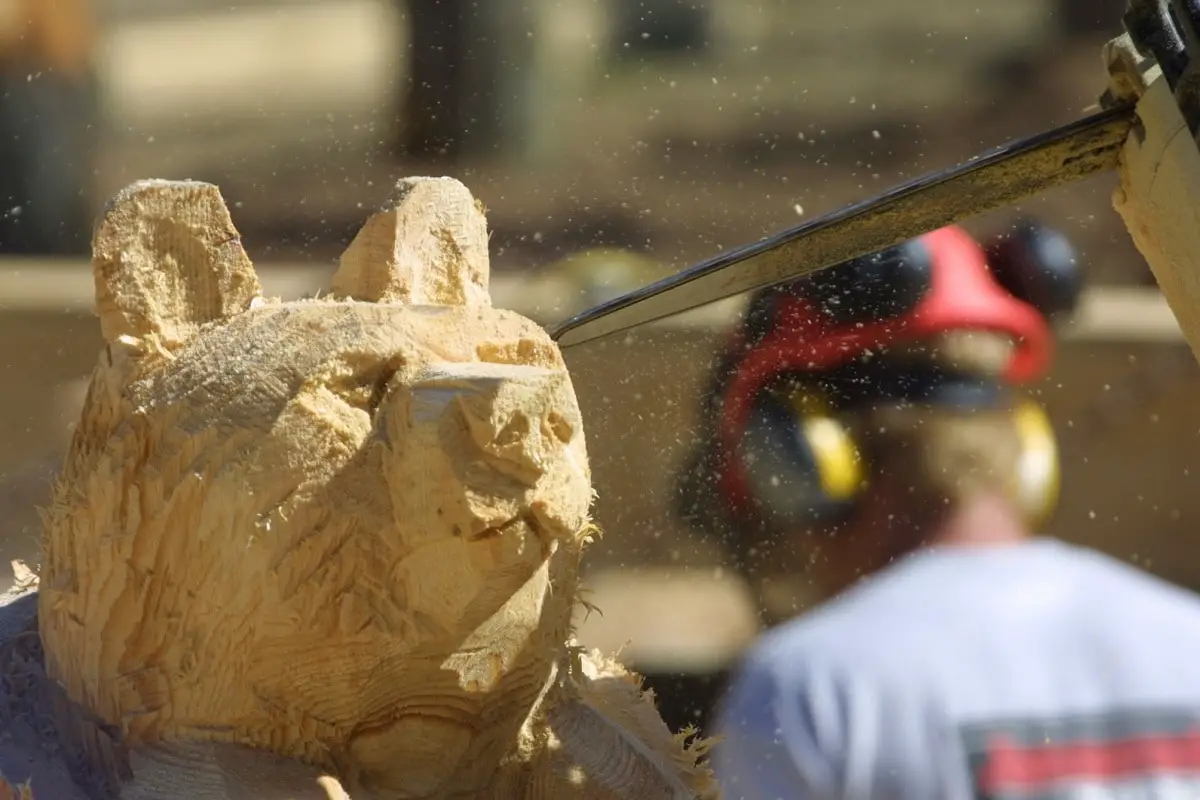
The main tool of a chainsaw artist is the chainsaw itself. These are highly dangerous tools that only a skilled craftsman should wield. Chainsaws also put out a large amount of wood material as they cut. This definitely puts the eyes at risk of injury from flying wood chips, or from the tools themselves.
Many chainsaw artists work outdoors where breezes can blow wood chips and dust off the saw and up from the ground. These can easily get into your eyes and cause irritation or injury.
#2 Furniture Maker
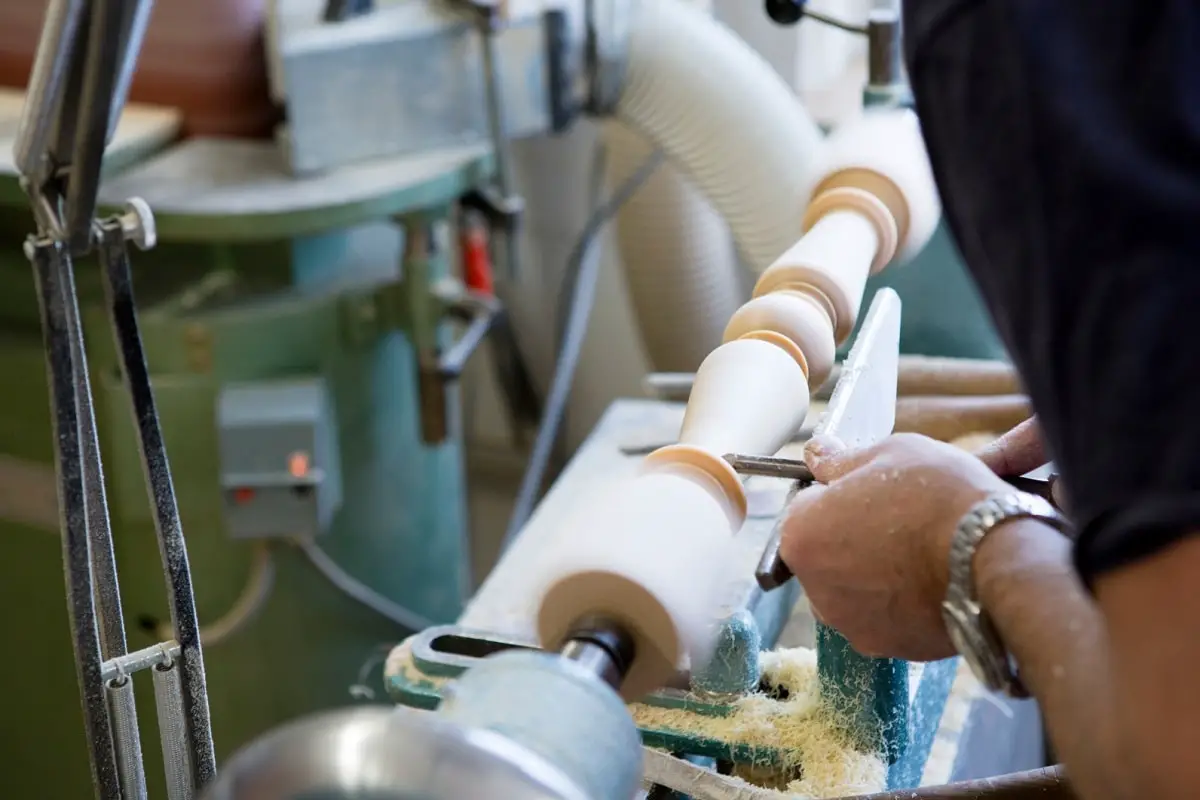
Furniture makers are artisans, often self-employed and make furniture by hand in a woodworking shop or workshop. A furniture maker can be either a master craftsman or a member of an industry which he or she represents.
This occupation often requires a close-up view of the woodwork. Tools used that can present eye dangers include:
- Table saw
- Miter Saw
- Drills
- Lathe
- Circular Saw
#3 Carpenter

Working with all types of wood and wood products. A carpenter is a jack-of-all trades type of job that has to be flexible in which projects they work on. This puts them in contact with dangerous woodworking environments. Wood is the material carpenters work with most and presents the risk of eye injury from wood pieces or dust. Carpenter tools are also dangerous and can cause significant eye injury.
#4 Cabinet Maker
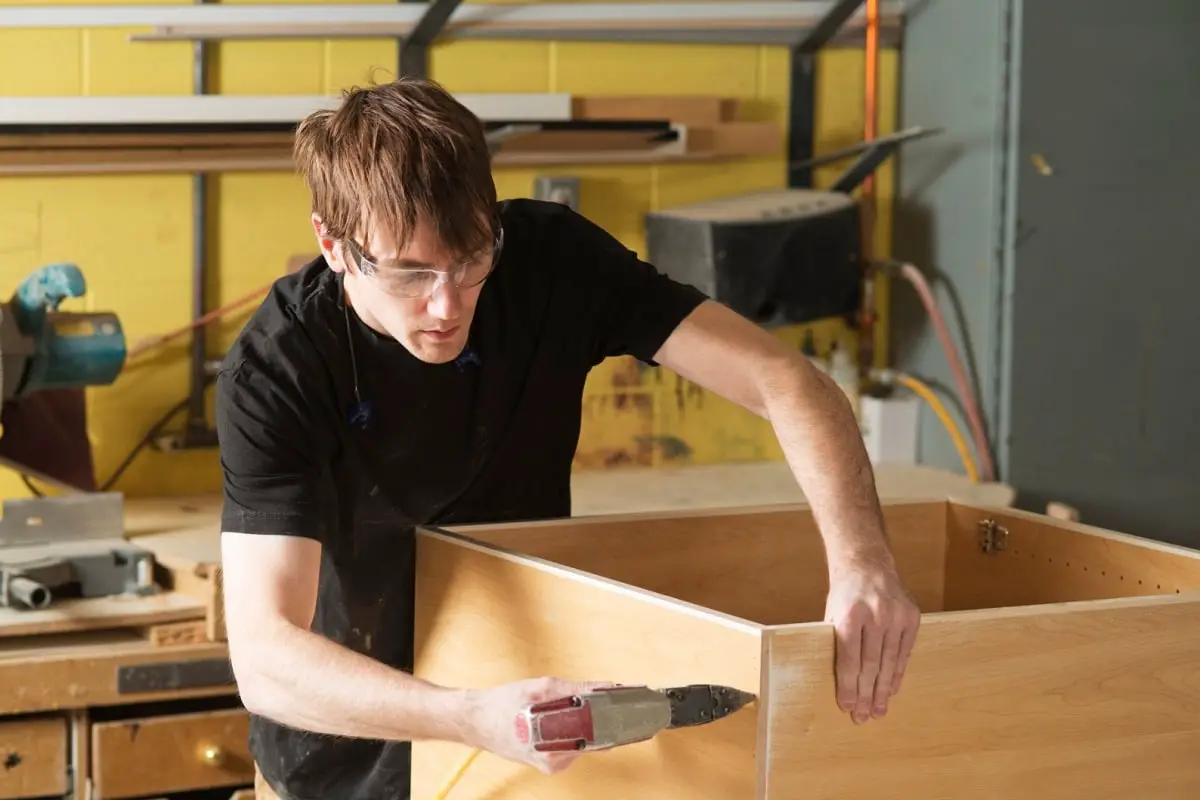
Cabinet makers make cabinets from scratch using a variety of wood types, and mostly by hand and using power tools. Some cabinet makers make custom cabinets that are specifically made for certain businesses or offices. Hands-on craftsmanship training usually requires an individual to either work under a mentor or receive formal training and certification in the field of cabinet making. Similar to carpenters and furniture makers, cabinet makers face risks to their eyes while working in their shops on a daily basis.
#5 Clock Maker
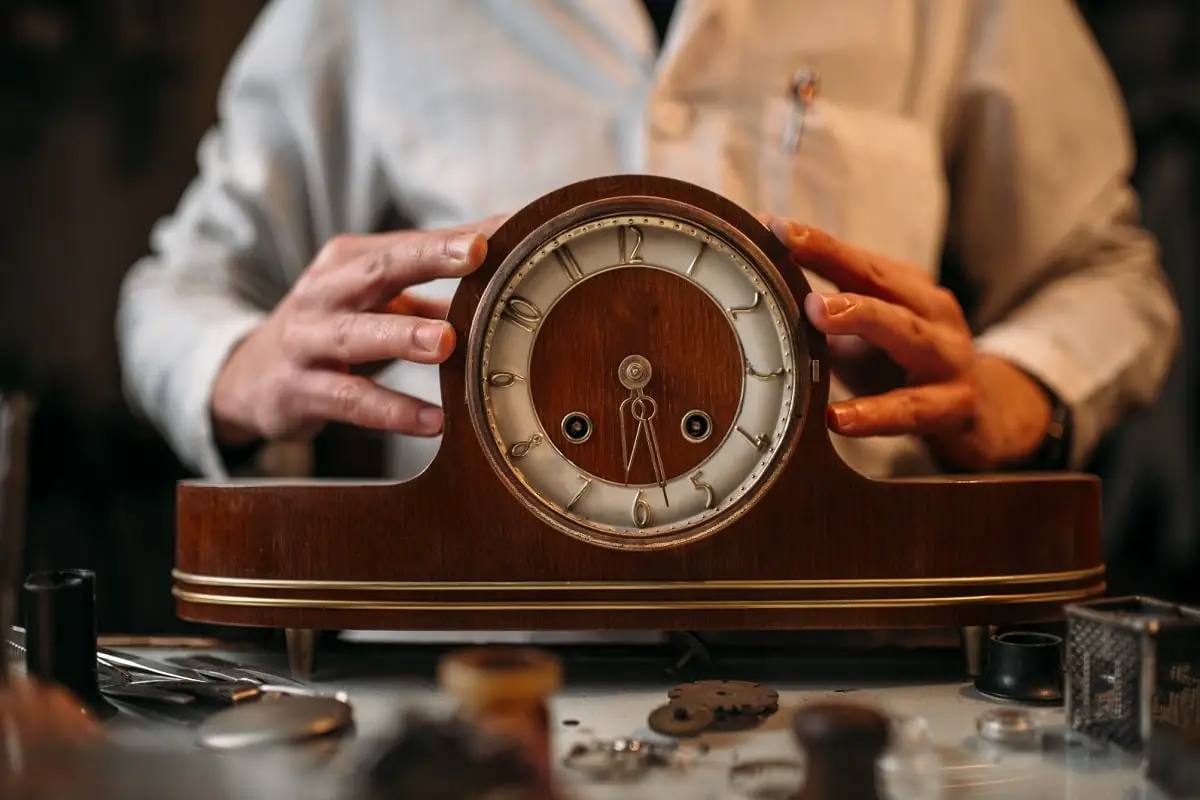
Clockmakers that make clocks of all sizes, often using wood as a material. Tools used for clock making are similar to cabinet makers, but with smaller drill bits, saw blades, and fine sanding papers. There are also engraving tools that may be used for clockmakers to add artistic designs. All of these can lead to injuries to the eyes from wood chips. Clockmakers also work with small metal parts that could lead to eye injuries if they get airborne. Woodworking safety glasses can be used by clockmakers to protect their eyes and face.
#6 Boat Makers

Believe it or not, many boats are still constructed out of wood. Even boats and ships made of steel or composites rely on wood for their interior cabin spaces. High-end custom-built wooden boats get produced each year along with low-end fishing boats or rowboats. Boat makers are also tasked with maintaining wooden boats that inevitably need repairs.
Boat makers work in shops with saws, drills, and other tools meaning they face the same risks to their eyes and face as other woodworkers. Thus, woodworking safety glasses are great for boat makers to stay protected.
#7 Engraver / Carver
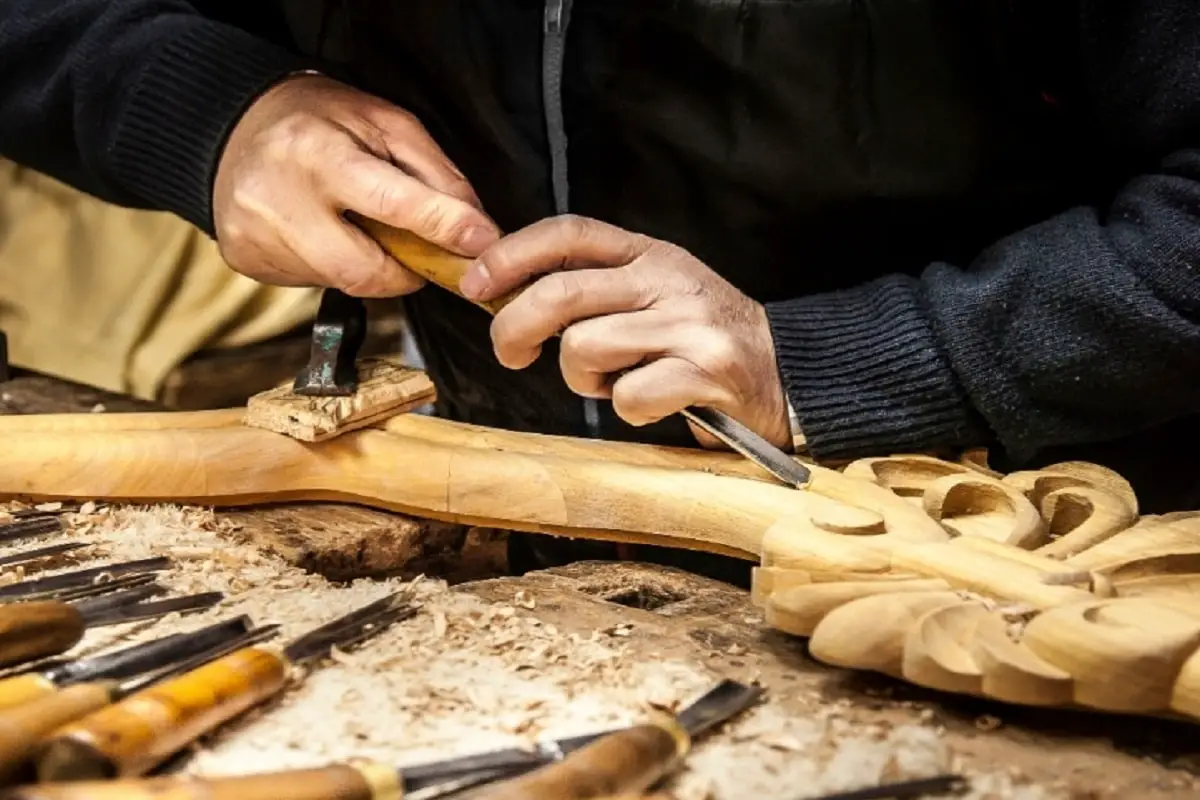
Wood carvers are often tasked to make wooden statues for homes, businesses, or museums. They can also engrave logos, signs, and decorations. Nice homes often have engraved staircases and shelves. Carvers and engravers work with all kinds of materials, including plastics, bone, metal, stone, and wood. Carving wood creates dust and chips that can go through the air and land on clothing, shop tables, chairs, and in the eyes. This is why woodworking safety glasses are excellent protection for woodcarvers and engravers while they work.
#8 Musical Instrument Makers
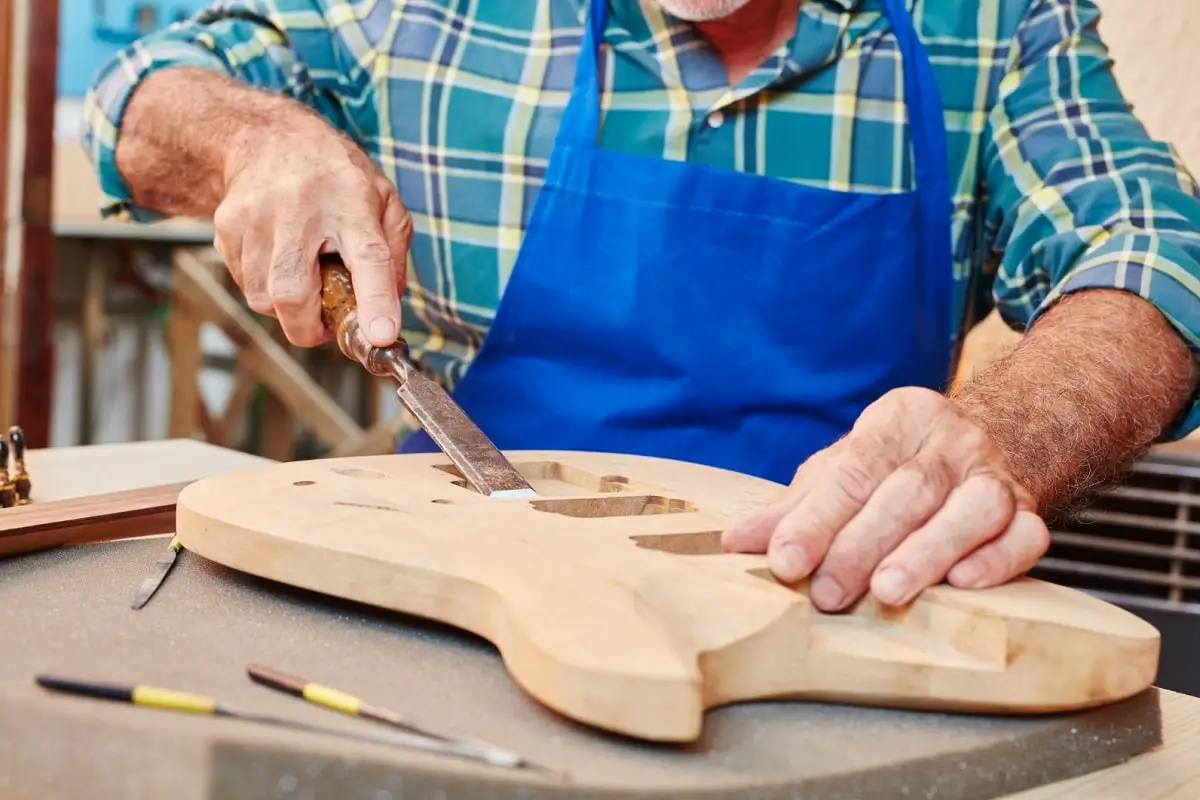
Making wooden musical instruments (pianos, violins, guitars) requires close attention to detail using finely tuned tools. They also use more standard shop saws and drills. Similar to engravers, musical instrument makers rely on their acute ability to visualize their work, so their eye safety is important. A serious eye injury could put their entire livelihood at risk or hinder the quality of their work. This is why woodworking safety glasses are ideal for musical instrument makers.
#9 Toy Makers
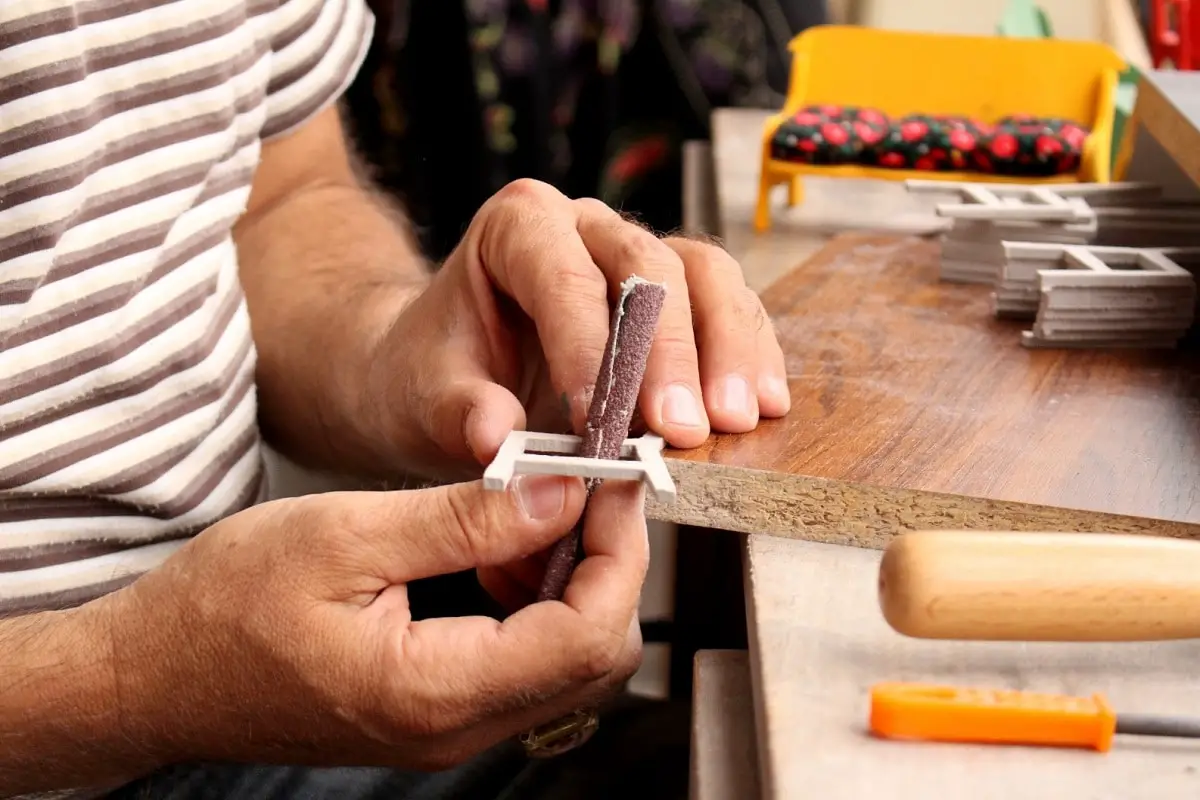
Toymakers that work with wood will face similar risks as other woodworkers. Some toys have detailed components that demand working up close to the materials and tools. Toymakers rely on their eyes to make quality products, so wearing woodworking safety glasses is a great way to protect them.
#10 Wood Shop Manager
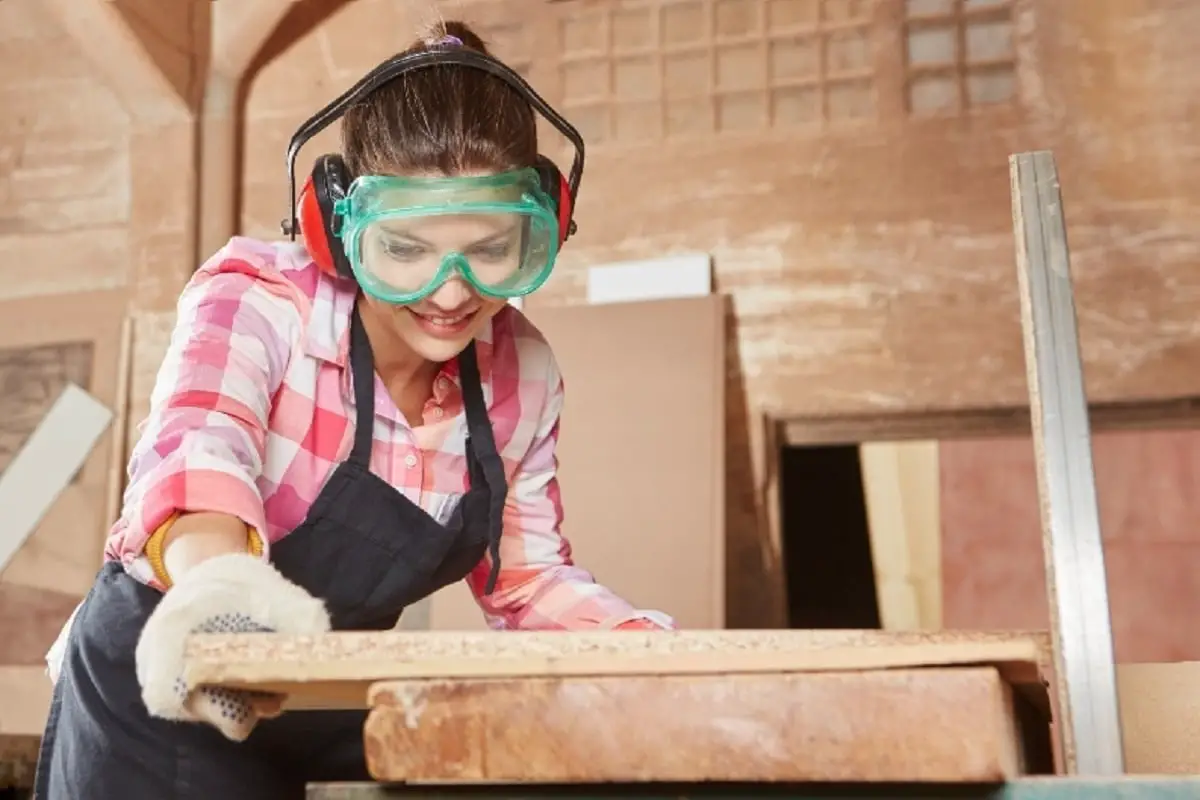
A woodshop manager is in the thick of things when working in the shop. This job definitely requires woodworking safety glasses. A woodshop manager that oversees a woodshop is at risk of wood chips hitting their eyes, even if they are standing at a distance.
#11 Sawmill Operator
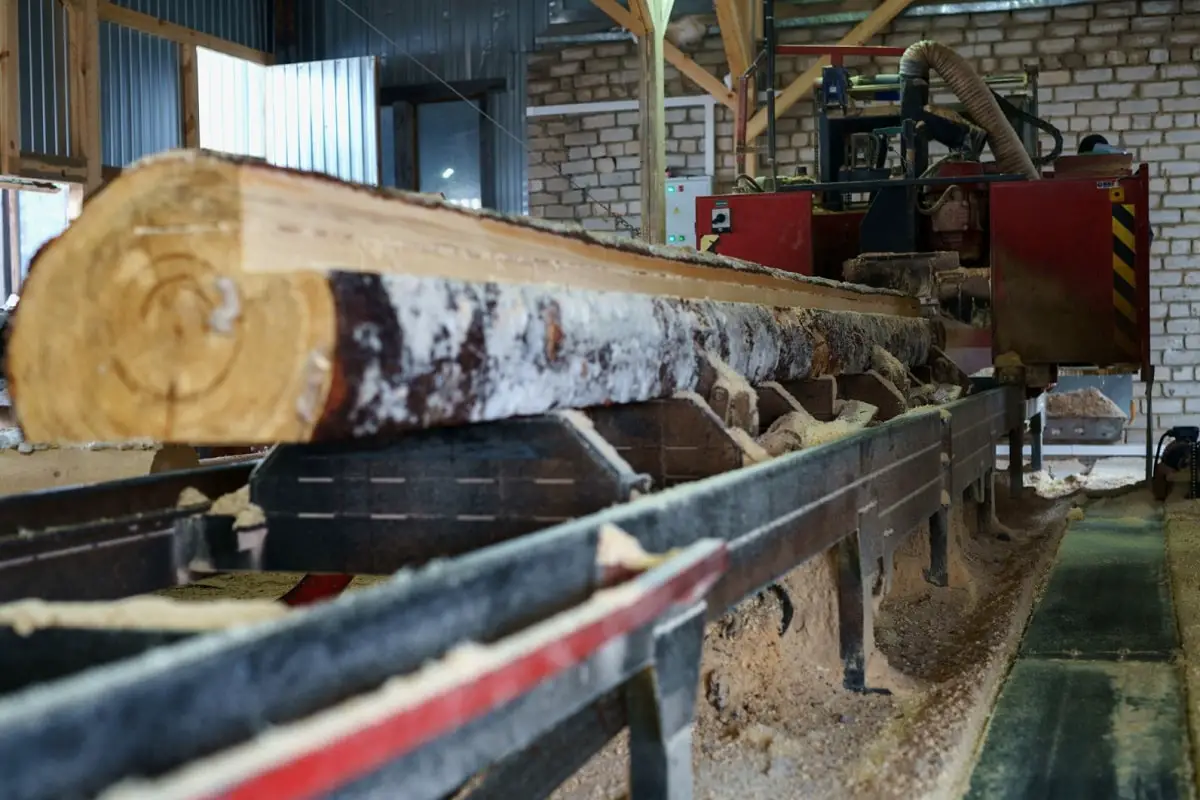
Sawmills are dangerous working environments with large pieces of lumber and wood being run through large powerful saws and lathes. Having woodworking or industrial safety glasses on at all times is a requirement. Helmets and gloves are also likely a requirement, depending on the facility, as are extensive cleaning and safety processes.
#12 Christmas Tree Farm Worker

Cutting and sawing christmas trees with handsaws or chainsaws presents risks to the eyes from flying wood chips. Being poked by branches in the eyes is another risk factor.
You can wear woodworking safety glasses for tasks that require other types of safety glasses.
Its recommended only to buy ANSI rated safety glasses, regardless of whether you plan on using them for woodworking or not.
